29, September 2020
Coronavirus: Testing drive unveiled as deaths pass one million 0
Coronavirus tests that deliver results in 15-30 minutes are to be rolled out across the United States and in scores of poorer countries, as health authorities worldwide try to get a handle on a disease that has now killed more than a million people.
US President Donald Trump announced 150 million tests would be distributed in America, while the World Health Organization said 120 million more would be available for the developing world at $5 each as long as funding was secured.
The testing push comes as the virus shows no sign of receding, with infection numbers climbing rapidly in Europe again and governments there clamping down on movement in an attempt to curb the surge.
Paris, London and Madrid have all been forced to introduce controls to slow infections, and on Monday Dutch authorities became the latest to tighten curbs, while the Czech Republic and Slovakia said they were preparing to declare a state of emergency.
The WHO said its $600 million scheme to roll out the quick diagnosis kits across 133 countries in the next six months would enable low- and middle-income nations to close the gap in testing with the rich world.
The kits are far faster, cheaper and easier to administer than regular standard polymerase chain reaction (PCR) swab tests but are less sensitive and more likely to return false negatives.
“This will enable the expansion of testing, particularly in hard-to-reach areas that do not have lab facilities or enough trained health workers to carry out PCR tests,” WHO director-general Tedros Adhanom Ghebreyesus told a virtual press conference.
Experts have for months been calling for widespread adoption of this low-cost technology so that people can test themselves several times a week.
Harvard epidemiologist Michael Mina said the testing drive “is terrific and is a great start”.
But the amount being distributed by the US government was “simply not sufficient” and production should be multiplied ten- or twentyfold, he added.
– ‘Whatever is necessary’ –
The tests are part of a limited toolkit available to governments as they seek ways to get the wheels turning on economies that have been crippled in recent months by lockdowns and other restrictions on people’s lives.
A million Madrid residents are under partial lockdown, with the city and the surrounding region at the centre of Spain’s second wave.
The national government on Monday warned the local authorities of drastic measures if the region failed to move decisively to slow the uncontrolled spread.
“There is no doubt that (the central government) is prepared to do whatever is necessary,” Justice Minister Juan Carlos Campo told Spain’s RNE public radio.
– ‘Made peace with it’ –
Worldwide the virus has now infected more than 33 million people and killed over a million, according to an AFP tally compiled from official sources.
On Monday the number of cases in India surpassed six million, with the country on course to overtake the United States in the coming weeks as the nation with the most infections.
Locals in Delhi said while they remained cautious, their fears had lessened since the pandemic began earlier this year.
Himanshu Kainthola, 61, who recovered from the virus last month, said his family’s worries had “reduced substantially”.
“We take the necessary precautions and invest in increasing our immunity rather than being anxious or scared of it,” he said. “We have made peace with it.”
Source: AFP

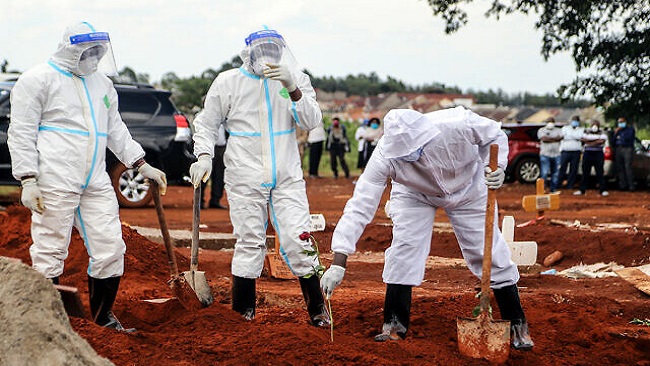

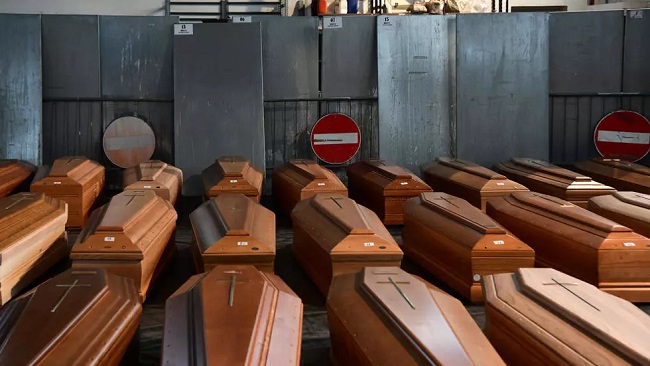
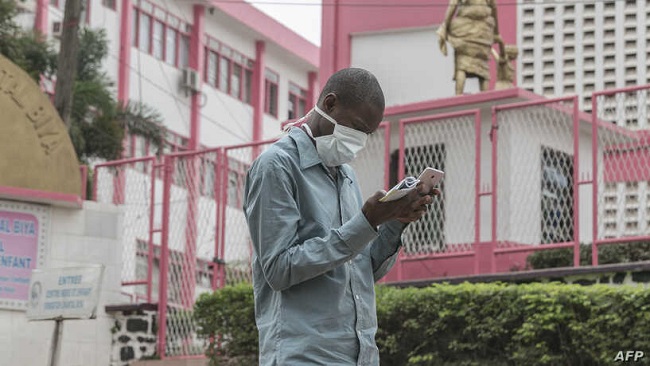
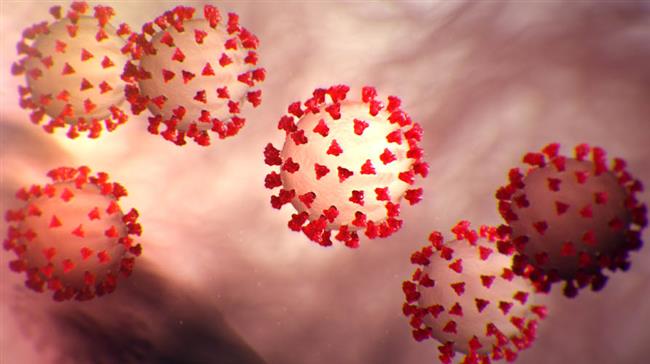
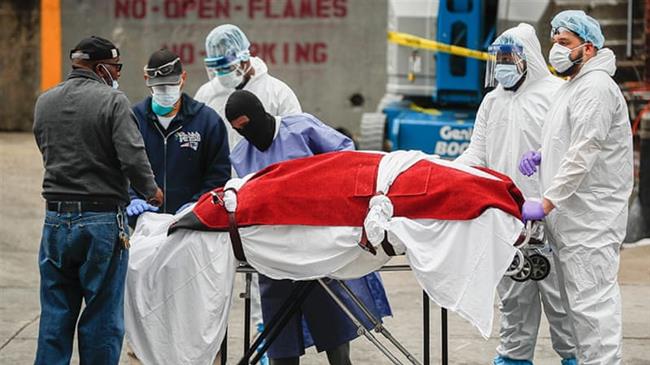

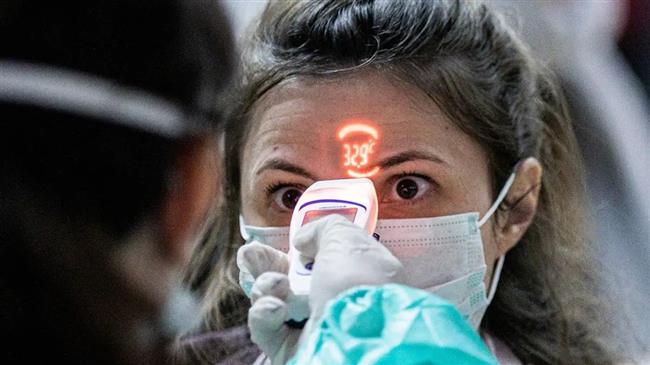

















5, October 2020
2020 Nobel medicine prize awarded to US-British trio for Hepatitis C discovery 0
Americans Harvey J. Alter and Charles M. Rice and Briton Michael Houghton won the 2020 Nobel Prize for Physiology or Medicine for the discovery of the Hepatitis C virus, the Nobel Committee announced Monday.
The three were honoured for their “decisive contribution to the fight against blood-borne hepatitis, a major global health problem that causes cirrhosis and liver cancer in people around the world,” the jury said.
“The discovery of Hepatitis C virus revealed the cause of the remaining cases of chronic hepatitis and made possible blood tests and new medicines that have saved millions of lives”, it added.
Thanks to their discovery, highly sensitive blood tests for the virus are now available and these have “essentially eliminated post-transfusion hepatitis in many parts of the world, greatly improving global health”, the Nobel Committee said.
Their discovery also allowed the rapid development of antiviral drugs directed at Hepatitis C.
“For the first time in history, the disease can now be cured, raising hopes of eradicating Hepatitis C virus from the world population,” the jury said.
“Prior to their work, the discovery of the Hepatitis A and B viruses had been critical steps forward,” the Nobel Assembly at Sweden’s Karolinska Institute said in a statement.
The award for work on a virus comes as the world battles the new coronavirus pandemic.
The trio will share the Nobel Prize sum of 10 million Swedish kronor (about $1.1 million or €950,000).
Celebrations overshadowed by the coronavirus pandemic
While the Nobel awards will go ahead as planned this year, celebrations have been overshadowed by the coronavirus pandemic.
The Nobel Foundation has cancelled the traditional banquet, which forms the centre-piece of the celebrations in December, replaced with a televised ceremony showing the laureates receiving their awards in their home countries.
They would normally receive their prize from King Carl XVI Gustaf at a formal ceremony in Stockholm on December 10, the anniversary of the 1896 death of scientist Alfred Nobel who created the prizes in his last will and testament.
This year’s winners will be invited to celebrate alongside the 2021 laureates, assuming the pandemic has eased by then.
Last year, the honour went to US researchers William Kaelin and Gregg Semenza and Britain’s Peter Ratcliffe on for discoveries on how cells sense and adapt to oxygen availability.
The winners of this year’s physics prize will be revealed on Tuesday, followed by the chemistry Prize on Wednesday. The literature prize will be announced on Thursday and the peace prize on Friday. The economics prize will wrap up the Nobel Prize season on Monday, October 12.
(FRANCE 24 with AFP & Reuters)